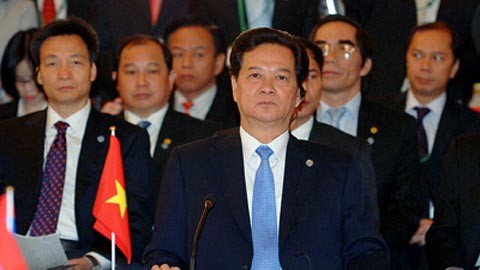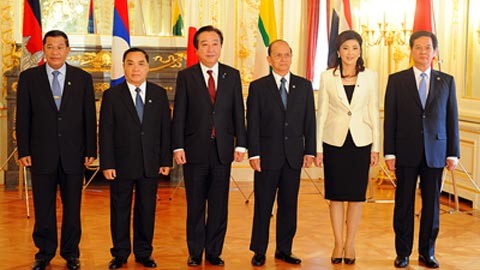(VOVWorld) – Prime Minister Nguyen Tan Dung has highlighted the adoption of the Tokyo Strategy as the most significant outcome of the 4th Mekong-Japan Summit.
 |
| PM Dung at the summit. Photo: VOV |
Speaking following the press conference in Tokyo on Saturday, Dung said that the strategy focuses 3 key areas of cooperation, including strengthening the connectivity within the Mekong region and with outside partners to fully tap the region’s strategic location. The other two include creating the best possible conditions for trade and investment, and further linking Mekong region to the global value chains. Nations in the Mekong region and Japan are determined to work closer in trade and investment, improve business environment, attach more importance to the private economic sector and create more favorable conditions for the businesses to boost private-public co-operation. Participating countries also agreed to strengthen practical co-operation in utilizing, preserving, and managing sustainably Mekong water resource. “Vietnam has made an initiative to develop a multi-functional transport system to best utilize the river network and turning it into a support for land and sea transport. This also helps to create best conditions for tourism and goods transport, as well as environment. The initiative was strongly welcomed by the participating countries and will put into reality step by step,” said Prime Minister Dung.
Japanese Prime Minister Yoshihiko Noda said that Japan will provide a 7.3 billion USD grant to Mekong countries until 2015. He also proposed 57 projects worth 28 billion USD to support infrastructural development in the Mekong region. Of which, 26 projects will be implemented in Vietnam.
 |
| Heads of participating delegations. Photo: VOV |
The 4th Mekong-Japan summit also discussed regional and international issues, including the need to maintain peace, stability, safety and maritime freedom in the East Sea.
Thanh Chung – VOV reporter